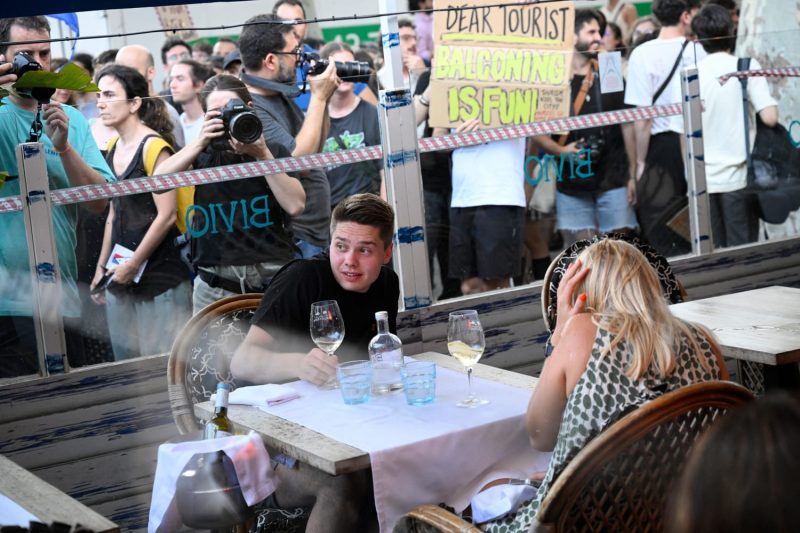The recent unrest in Barcelona, where protesters targeted travelers with water and shouted slogans like tourists go home, has brought to light the complexities and tensions surrounding tourism in the region. The confrontation reflects deeper issues of economic disparities, cultural preservation, and environmental concerns that many popular tourist destinations are grappling with worldwide.
One of the key factors contributing to anti-tourist sentiments in Barcelona is the perception of overtourism and its adverse effects on local residents’ quality of life. As the number of tourists visiting the city has surged in recent years, long-time residents have experienced rising living costs, overcrowding, and noise pollution. The protesters’ actions can be seen as a manifestation of frustration over feeling marginalized and overshadowed in their own neighborhoods.
Additionally, there is the issue of cultural commodification and erosion. As tourism becomes a dominant industry in Barcelona, there is a risk of the city losing its authentic identity and becoming a theme park designed primarily for tourist consumption. This can lead to the homogenization of local culture, as businesses cater more to tourist tastes rather than preserving traditional practices and way of life.
Environmental concerns also play a significant role in fueling anti-tourist sentiments. The influx of tourists can strain local resources, lead to increased waste generation, and contribute to carbon emissions. Residents may feel that the environmental costs of tourism outweigh the economic benefits, especially when they perceive that they are not the primary beneficiaries of tourism revenue.
It is essential for both local governments and the tourism industry to address these underlying issues to promote sustainable tourism practices that benefit both visitors and residents alike. Implementing measures such as regulating tourist accommodations, promoting off-the-beaten-path experiences, and engaging with local communities can help mitigate the negative impacts of tourism.
Moreover, fostering a sense of shared responsibility and mutual respect among tourists and residents is crucial in fostering harmony and understanding. Initiatives that encourage cultural exchange, environmental conservation, and community engagement can bridge the gap between tourists and locals, fostering a more inclusive and sustainable tourism model.
In conclusion, the recent protests in Barcelona shed light on the multifaceted challenges facing popular tourist destinations worldwide. By addressing issues of overtourism, cultural preservation, and environmental sustainability, stakeholders can work towards creating a tourism industry that benefits both visitors and local communities, fostering a more harmonious and sustainable future for all.

